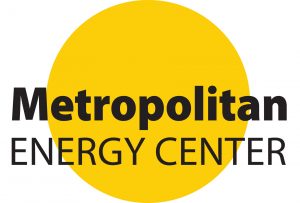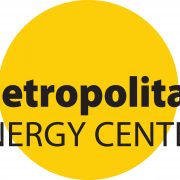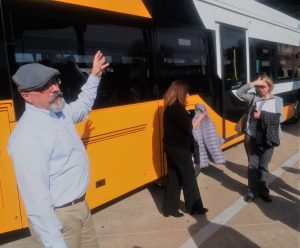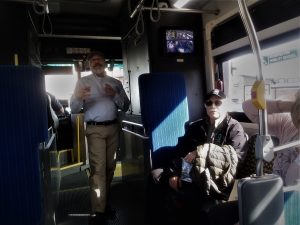By Tami Alexander, Central Kansas Clean Cities Coordinator
According to the U.S. Energy Information Administration’s January 2018 Monthly Energy Review, CO2 emissions for the transportation sector have now surpassed emissions for electricity generation. Greenhouse gas emissions from transportation make up 27% of all emissions (EPA, 2018). So, what can we as consumers do to help? There are the obvious solutions such as driving less, carpooling, and using public transportation. But what about those times when a personal vehicle is needed? The answer: Biofuels!
So, what are biofuels? You have likely heard them referred to as ethanol or biodiesel. Ethanol is a plant-based replacement for petroleum gasoline and biodiesel is a mostly plant-based alternative for petroleum diesel. These fuels can be used in traditional internal combustion engine vehicles in place of their petroleum counterparts with little to no alterations needed.
Contrary to the popular belief that petroleum is made from ancient dinosaurs, it is actually the product of ancient plant material which decayed over millions of years in an oxygen-free environment, forming the fossil fuels of coal, oil and natural gas. Biofuels are also made from plant material which is processed into the fuels quickly instead of taking millions of years. The difference is biofuels are renewable, non-toxic, and emit much less CO2 and other pollutants than petroleum fuels.
So, what goes into biofuels? Biofuels can be made from many different products called feedstocks. Ethanol is grain alcohol and can be made from multiple sources including corn, sorghum, sugar cane and even grasses. Biodiesel can be made from vegetable oil, used cooking oil, and poultry or beef fat. Feedstocks can vary the amount of emissions produced by the fuels, but all are cleaner than petroleum fuels and renewable. And, they can produce the same quality of fuel.
Many studies have touted the importance of biofuels in the move to lowering emissions and becoming carbon neutral (IRENA, 2018). One major advantage is that biofuels use the same infrastructure as petroleum fuels and can be fairly easily used in most vehicles with little to no modification necessary. In fact, 97% of gasoline in the US contains 10% ethanol and can be used in any gasoline engine. The ethanol boosts the octane of petroleum gasoline which is necessary in today’s higher performing engines. All gasoline vehicles model year 2001 or newer can burn E15 (a blend of 15% ethanol gasoline and 85% petroleum gasoline). Flex-fuel vehicles can use blends up to E85 (85% ethanol). And most manufacturers of diesel vehicles warranty their engines to use blends up to B20 (20% biodiesel and 80% petroleum diesel).
Biofuels are more difficult to find than petroleum gasoline, but their availability is increasing. Check out the Alternative Fuels Data Center on the Department of Energy’s website to find out where you can buy biofuels in your area. (www.afdc.energy.gov/stations) The website can also help you find vehicles that use biofuels and give you other important information about biofuels and other alternative fuels.
References
International Renewable Energy Agency (IRENA). (2018, February). Renewable energy prospects for the European Union. Retrieved from: https://irena.org/-/media/Files/IRENA/Agency/Publication/2018/Feb/IRENA_REmap-EU_2018_ summary.pdf?la=en&hash=818E3BDBFC16B90E1D0317C5AA5B07C8ED27F9EF
U.S. Energy Information Administration. (2018, January). Monthly energy review. Washington, DC: U.S. Department of Energy Office of Energy Statistics.
U.S. Environmental Protection Agency (EPA). (2018, February 6). Inventory of U.S. greenhouse gas emissions and sinks: 1990–2016. Washington, DC: U.S. Environmental Protection Agency.






